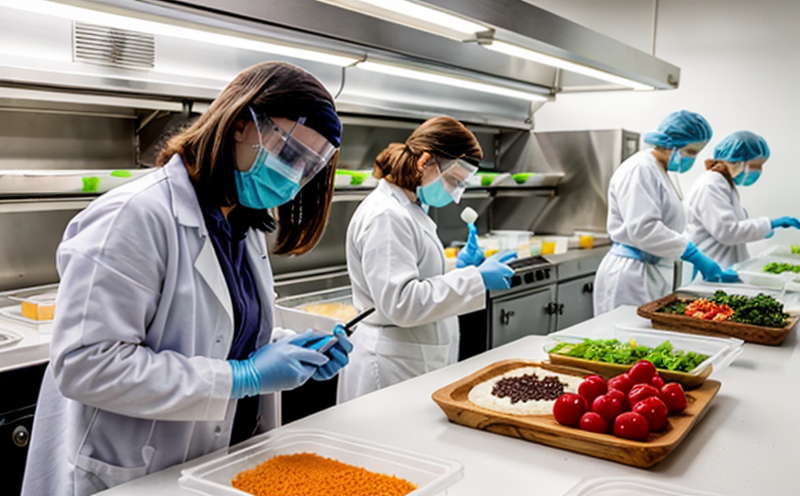ISO 16649-1 E. coli Enumeration Testing
The ISO 16649 series of standards is designed to provide a harmonized approach to food microbiology testing, ensuring consistency and reliability in the enumeration and identification of microorganisms within food products. Among these, ISO 16649-1 E. coli Enumeration focuses specifically on the quantitative analysis of Escherichia coli (E. coli) bacteria in various foods.
E. coli is a common indicator of fecal contamination and can be found in many food products if they have been exposed to contaminated water or soil during production, processing, or handling. This test plays a crucial role in ensuring the safety and quality of food products by quantifying potential pathogens that may pose health risks.
The process involves several steps: first, a suitable enrichment broth is used to enhance the growth of E. coli in the sample. Following incubation at specified temperatures (typically 36°C ± 1°C), colonies are counted on MacConkey Agar plates. This method allows for accurate enumeration based on colony-forming units (CFUs).
The test protocol meticulously outlines all necessary steps, from sampling to final reporting, ensuring that results are consistent and reproducible across laboratories. Compliance with these standards is essential for meeting regulatory requirements set by health authorities worldwide.
Our laboratory adheres strictly to the procedures specified in ISO 16649-1, guaranteeing accurate counts of E. coli in your samples. By choosing our service, you can rest assured that you receive reliable data that meets international standards and helps maintain consumer trust.
| Key Steps in ISO 16649-1 E. coli Enumeration |
|---|
| Sampling of food products |
| Enrichment with Tryptic Soy Broth (TSB) |
| Incubation at 36°C ± 1°C for 24 hours |
| Transfer to MacConkey Agar plates |
| Further incubation at 36°C ± 1°C for 18-24 hours |
| Counting of colonies |
| Reporting CFUs per gram or milliliter |
We utilize advanced equipment such as automated colony counters to ensure precision and minimize human error. Our skilled technicians follow rigorous protocols, ensuring that each test adheres strictly to ISO 16649-1 guidelines.
Applied Standards
- ISO 16649-1:2018 - Food Microbiology; Enumeration of Escherichia coli in food
The standard specifies the procedures for enumerating E. coli in various types of food using a combination of enrichment and selective agar plating methods.
Why Choose This Test
- Precision: Utilizes standardized protocols ensuring accurate enumeration.
- Reliability: Consistent results across multiple tests.
- Regulatory Compliance: Meets international standards required by health authorities worldwide.
- Consumer Confidence: Ensures food safety and quality, enhancing brand reputation.
E. coli enumeration testing is critical for maintaining the integrity of food products and protecting public health. By selecting this service, you ensure that your organization complies with global best practices in food microbiology.
Environmental and Sustainability Contributions
In addition to ensuring product safety and quality, our ISO 16649-1 E. coli Enumeration Testing contributes positively to environmental sustainability by:
- Promoting efficient resource use through accurate testing.
- Avoiding waste from non-compliant products that might otherwise enter the market.
- Supporting regulatory compliance which minimizes potential legal issues and recalls.
By adhering to these standards, we help businesses operate responsibly and contribute to a safer and more sustainable food supply chain.





